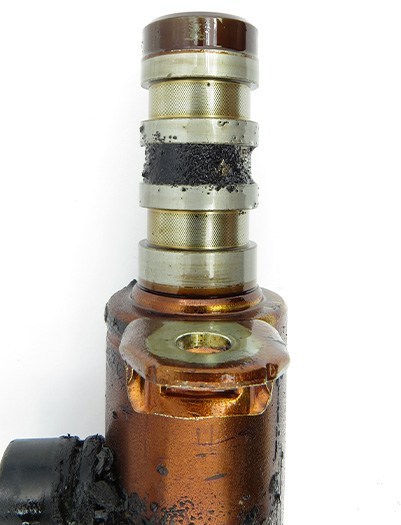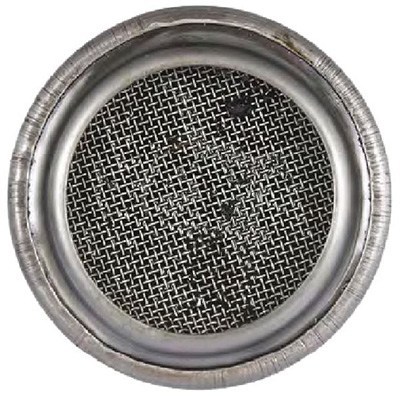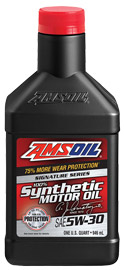Engine Sludge Is Easily Avoidable
Engine sludge.
It’s a back gelatinous substance that wreaks havoc in engines. And long before the engine’s demise, engine sludge can foul engine sensors and interfere with performance. Some mechanics call it the “black death.”
How does motor oil, which is fluid, become a semi-solid paste or gel inside an engine?
Here’s what we’ll cover:
- How engine sludge forms
- The effects of engine sludge
- Synthetic oil helps prevent engine sludge
- High-quality additives fight engine sludge
- Severe service invites engine sludge
How engine sludge forms
Engine sludge is the result of a series of chemical reactions.
The lubricant degrades as it is exposed to oxygen and elevated temperatures. The higher the temperature, the more rapid the rate of degradation. In fact, every 18°F (10°C) increase in temperature doubles the rate of oxidation.
Many people still believe any oil is fine as long as you change it often but 95% of the brands out there do not address that inch of protection when you really need it!! We’ve all had issues where the engine is overheating or some situation where adequate lubrication isn’t available. AMSOIL offers 75% more protection when you need it and our diesel oils offer 6X more protection than required by industry testing.
The by-products of this reaction form highly reactive compounds that further degrade the lubricant. Their by-products react with other contaminants, forming organic acids and high-molecular-weight polymeric products. These products further react, forming the insoluble product known more commonly as sludge.
What begins as a thin film of lacquer or varnish deposits on hot or cold metal surfaces and bakes into an expensive mess.
The effects of engine sludge
Sludge can block the oil passages and oil-pump pick-up screen, resulting in oil starvation. Often, the negative effects are cumulative rather than sudden.
Many engines with variable valve timing (VVT) use oil-pressure-operated mechanical devices to change valve timing, duration and lift. Sludge can plug the solenoid screen or oil gallies and impact the operation of VVT mechanisms, eventually leading to a costly repair bill. Sludge reduces efficiency and increases time and money spent on maintenance.
Who doesn’t want a cooler engine? Sludge, even the early stages prevents the engine from dispersing heat efficiently. Why would you risk a Group III “synthetic” which does leave deposits adding to or resulting into an engine which struggles to exhaust heat.
Synthetic oil helps prevent engine sludge
Fortunately, sludge and varnish deposits are something oil manufacturers can control. Using thermally stable synthetic base oils reduces the rate of degradation (oxidation). (Yes – and that is “Real 100%” Synthetics – not the ones they currently call “Fully”..
Anti-oxidant additives help reduce the rate of degradation as well. One of the most widely used is zinc dithiophosphate. Not only is it an excellent oxidation inhibitor, it is an outstanding anti-wear additive as well.
High-quality additives fight engine sludge
We can further address many of the issues occurring after the initial oxidation stage.
Additives, such as detergents and dispersants, are commonly part of motor oil formulation. They help promote the suspension of contaminants within the oil and keep them from agglomerating.
Detergents, which are also alkaline in nature, assist in neutralizing acids generated in the sludge-building process. Anti-oxidant, dispersant and detergent additives are consumed during use.
To achieve maximum life expectancy, use an oil with high concentrations of anti-oxidant, dispersant and detergent additives.
AMSOIL Signature Series Synthetic Motor Oil, for example, has 50 percent more detergents* to help keep oil passages clean and promote oil circulation. It provides 90 percent better protection against sludge**.
Signature Series Synthetic Motor Oil was subjected to the Sequence VG test to measure its ability to prevent sludge. Signature Series produced an oil pick-up tube screen virtually free from sludge. Our unique combination of detergents and high-quality base oils control oxidation and sludge to keep engines clean and efficient.
PDF of the test where AMSOIL has this done (Southwest Research)
Severe service invites engine sludge
Equipment operating conditions also influence the likelihood of sludge or varnish issues.
Stop-and-go driving, frequent/long-term idling and operation in excessively hot or cold weather can increase the likelihood of sludge and varnish, especially if using more volatile conventional oils. If sludge has already formed, you can use an engine flush to clean sludge from your engine.
Interestingly, most auto manufacturers note in their owner’s manual that operation under any of the above conditions is considered severe service and requires more frequent oil changes.
From a mechanical standpoint, things like adding too much oil to the oil sump, antifreeze contamination, excessive soot loading, excessive oil foaming, poor engine-combustion efficiency, excessive blow-by and emission-control-system issues can all lead to the formation of sludge and varnish.
By practicing good maintenance and using properly formulated, premium synthetic lubricants, like AMSOIL synthetic motor oil, your vehicle won’t succumb to the “black death.”
Taking it a step further which many of our customers do – to make sure your vehicle is always running in peak condition one thing is to have your oil analyzed. I do it not so much to see how the oil is doing but to measure what may be going on in the engine to deplete detergents or to test for any out of typical wear levels, fuel in the crankcase, and to see if the viscosity is still on par. Oil analysis kits are easy to use especially when you have the dipstick extraction pump.
*vs. AMSOIL OE Motor Oil
**Based on independent testing of AMSOIL Signature Series 5W-30 in the ASTM D6593 engine test for oil screen plugging as required by the API SN PLUS specification.









